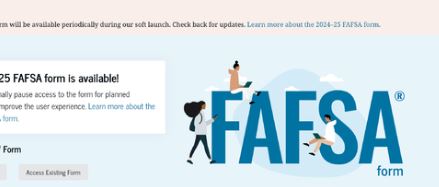FAFSA Delays Exerting Pressure on Families and Colleges Amidst Financial Uncertainty

As the academic year unfolds, families and colleges alike are grappling with the ramifications of delayed Free Application for Federal Student Aid (FAFSA) processing, exacerbating financial strain in an already challenging landscape. The repercussions of these delays are multifaceted, affecting students’ access to financial aid and creating a ripple effect on higher education institutions.
Sources within the U.S. Department of Education have acknowledged a backlog in processing FAFSA applications, attributing it to increased demand and staffing challenges. The surge in applications, exacerbated by the economic impacts of the ongoing global situation, has overwhelmed the system, leaving families anxiously awaiting crucial financial aid decisions.
One key issue arising from these delays is the uncertainty surrounding students’ ability to plan for their educational expenses. The timely processing of FAFSA is pivotal for families to understand the financial support available and make informed decisions about college affordability. As the delays persist, students and their families are left in a state of limbo, unsure about their eligibility for aid and the overall financial landscape of pursuing higher education.
Colleges and universities, too, are feeling the strain as they navigate the complexities of enrollment management amidst FAFSA processing setbacks. Admissions offices are challenged with providing prospective students with accurate financial information, leading to potential fluctuations in enrollment numbers and financial planning.
The impact is particularly pronounced at institutions with a high percentage of students dependent on federal aid. Without timely FAFSA processing, these institutions may face difficulties in projecting their financial aid budgets, creating an additional layer of uncertainty in an already tumultuous fiscal environment for higher education.
Community college leaders, in particular, have raised concerns about the potential drop in enrollment due to FAFSA-related uncertainties. The delay in financial aid decisions may dissuade prospective students from pursuing higher education altogether, further exacerbating existing challenges in widening access to affordable education.
Efforts are underway within the Department of Education to address the FAFSA processing delays. Increased staffing, streamlined processes, and enhanced communication strategies are being implemented to expedite the resolution of the backlog and provide families with the financial clarity they desperately need.
In the meantime, the higher education community remains vigilant, advocating for proactive solutions to mitigate the impact of FAFSA delays on both students and institutions. The urgency of addressing these challenges is underscored by the broader societal goal of ensuring equitable access to education and supporting the stability of colleges and universities amidst an ever-evolving landscape of financial uncertainties.





